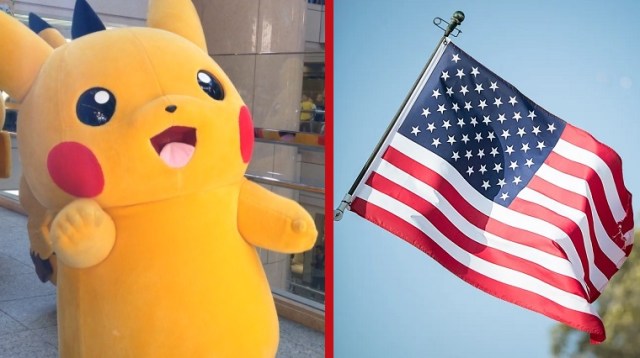
Siblings look to electrify the badminton competition at the Tokyo Olympics.
Part of what makes the Olympics special is that it’s an opportunity for sports that might not otherwise attract a worldwide audience to shine on a global stage. For example, though Japanese athletes Takeshi Kamura and Keigo Sonoda are very good at what they do, their sport, badminton, isn’t one in which the top stars are household names in most countries.
So when Japanese TV viewers tuned in for the pair’s doubles match on Monday morning, one of the first things they probably did was check the graphic in the corner of the screen where “Kamura” and “Sonoda” were written. Naturally, there eyes then came to the names of their American opponents, which seemed startling familiar to many people in Japan, even if they’d never watched a badminton match before in their life.
Representing the U.S. in the match were brothers Phillip and Ryan Chew. As is often done with non-Japanese names, “Chew” was written in the phonetic Japanese script called katakana, rendered like this:
However, since the brothers Chew obviously share a surname, the broadcaster needed some additional information to differentiate between the two in the on-screen graphic. Writing out their full names in katakana would have taken up a lot of extra space, so the TV crew decided instead to add their given-name initials. In Japanese writing, though, there’s no way to write just “P” or “R,” since those consonants always have to be followed by a vowel in the Japanese language. So in the end they went with a mix, using the English/Latin “P.” and “R.” and following them both with チュウ, as can be seen in the top-left of the screen, and that’s what had people in Japan doing a double-take.
https://twitter.com/omaru_97/status/1419732362858942496Why? Because as mentioned above, katakana is a phonetic writing system. That means チュウ isn’t just how you write “Chew,” but also how you write the identically pronounced “chu.” In other words, for many Japanese people, when they saw P.チュウ and R.チュウ…
バドミントン見てるんだけど
— あぉたん@NexPani (@aotan_nico) July 26, 2021
寝起き過ぎて
P.チュウ/R.チュウって文字見て
ピカチュウとライチュウ...( ¯꒳¯ )ᐝ
って読んだ pic.twitter.com/FYcOsI6mqR
…their immediate interpretation wasn’t “P. Chew” and “R. Chew,” but “P.chu” and “R.chu,” and in a country where Pokémon is an ever-present cultural phenomenon, their minds then went straight to Pikachu and Raichu!
▼ Top to bottom: P. Chew/P.chu, Pikachu, R. Chew/R.chu, and Raichu
The unexpected pseudo-presence of two Electric-type Pokémon at the Tokyo Olympics not as mascots, but as competitors, sent a shockwave of chuckles through Japanese Twitter, where comments included:
“Can’t see it as anything other than Pikachu and Raichu.”
“Whoa, when did Pikachu and Raichu form a badminton pair?!?”
“Pikchu and Raichu are always among the top contenders.”
“Sonoda and Kamura are taking on Pikachu and Raichu in men’s badminton!”
“Wait, shouldn’t Pikachu and Raichu be playing against, like, Slowbro and Pidgeotto instead?”
▼ One commenter even managed to track down artwork of the two Pokémon species actually playing badminton.
Tokyo2020
— ʚりくとɞ (@rikkun_Rikuto) July 26, 2021
バトミントン 男子ダブルス
🇯🇵 VS 🇺🇸
ピカチュウ/ライチュウ????
#オリンピック #バトミントン pic.twitter.com/2XB1JvXWl9
The match ended in a decisive victory for Kamura and Sonoda, who won both games by a wide margin. But while Phillip and Ryan didn’t leave with the victory, a whole lot of Japanese people will now definitely remember their last name.
Source: Twitter via Livedoor News/J-Cast News via Hachima Kiko, Tokyo 2020 Olympics
Top image: SoraNews24, Pakutaso
Insert images: SoraNews24
● Want to hear about SoraNews24’s latest articles as soon as they’re published? Follow us on Facebook and Twitter!

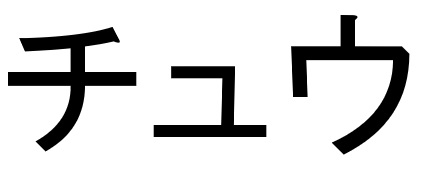
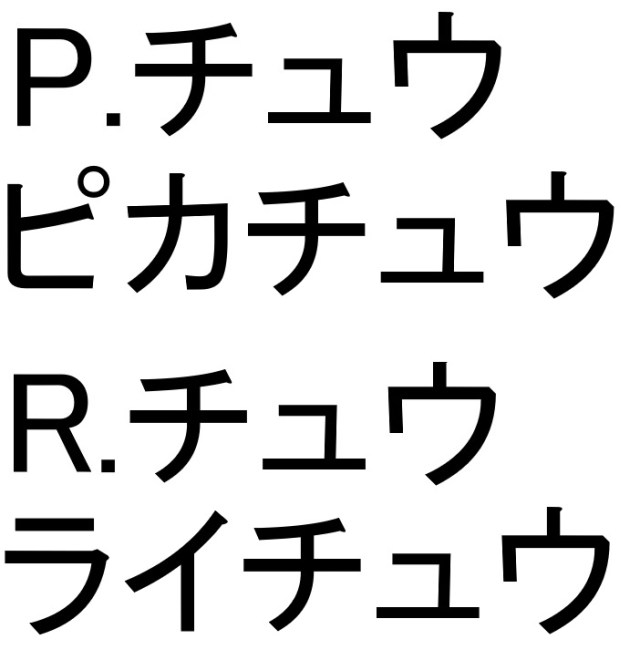
 Pokémon Center apologizes for writing model Nicole Fujita’s name as Nicole Fujita
Pokémon Center apologizes for writing model Nicole Fujita’s name as Nicole Fujita What we learned from Tokyo’s blizzard: Snow Pikachu evolves into Machochu
What we learned from Tokyo’s blizzard: Snow Pikachu evolves into Machochu And the winner of the Pokémon General Election is…
And the winner of the Pokémon General Election is… Pikachu speaks English in newest Pokémon anime movie, freaks out audiences【Video】
Pikachu speaks English in newest Pokémon anime movie, freaks out audiences【Video】 13-year-old Japanese girl becomes first-ever women’s skateboarding Olympic gold medalist【Video】
13-year-old Japanese girl becomes first-ever women’s skateboarding Olympic gold medalist【Video】 Foreigner’s request for help in Tokyo makes us sad for the state of society
Foreigner’s request for help in Tokyo makes us sad for the state of society Should you add tartar sauce to Japanese curry rice? CoCo Ichi makes diners an unusual offer
Should you add tartar sauce to Japanese curry rice? CoCo Ichi makes diners an unusual offer Japanese city loses residents’ personal data, which was on paper being transported on a windy day
Japanese city loses residents’ personal data, which was on paper being transported on a windy day Harajuku Station’s beautiful old wooden building is set to return, with a new complex around it
Harajuku Station’s beautiful old wooden building is set to return, with a new complex around it Seaside scenery, history, and so many desserts on Yokohama’s Akai Kutsu【Japan Loop Buses】
Seaside scenery, history, and so many desserts on Yokohama’s Akai Kutsu【Japan Loop Buses】 Red light district sushi restaurant in Tokyo shows us just how wrong we were about it
Red light district sushi restaurant in Tokyo shows us just how wrong we were about it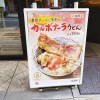 Limited-edition Carbonara Udon will anger noodle purists and pasta lovers 【Taste test】
Limited-edition Carbonara Udon will anger noodle purists and pasta lovers 【Taste test】 Akihabara pop-up shop sells goods made by Japanese prison inmates
Akihabara pop-up shop sells goods made by Japanese prison inmates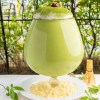 Japan’s massive matcha parfait weighs 6 kilos, contains hidden surprises for anyone who eats it
Japan’s massive matcha parfait weighs 6 kilos, contains hidden surprises for anyone who eats it French Fries Bread in Tokyo’s Shibuya becomes a hit on social media
French Fries Bread in Tokyo’s Shibuya becomes a hit on social media McDonald’s new Happy Meals offer up cute and practical Sanrio lifestyle goods
McDonald’s new Happy Meals offer up cute and practical Sanrio lifestyle goods Japanese ramen restaurants under pressure from new yen banknotes
Japanese ramen restaurants under pressure from new yen banknotes Studio Ghibli releases new action figures featuring Nausicaä of the Valley of the Wind characters
Studio Ghibli releases new action figures featuring Nausicaä of the Valley of the Wind characters New private rooms on Tokaido Shinkansen change the way we travel from Tokyo to Kyoto
New private rooms on Tokaido Shinkansen change the way we travel from Tokyo to Kyoto Tokyo Tsukiji fish market site to be redeveloped with 50,000-seat stadium, hotel, shopping center
Tokyo Tsukiji fish market site to be redeveloped with 50,000-seat stadium, hotel, shopping center Beautiful Ghibli sealing wax kits let you create accessories and elegant letter decorations【Pics】
Beautiful Ghibli sealing wax kits let you create accessories and elegant letter decorations【Pics】 Studio Ghibli releases Kiki’s Delivery Service chocolate cake pouches in Japan
Studio Ghibli releases Kiki’s Delivery Service chocolate cake pouches in Japan New definition of “Japanese whiskey” goes into effect to prevent fakes from fooling overseas buyers
New definition of “Japanese whiskey” goes into effect to prevent fakes from fooling overseas buyers Our Japanese reporter visits Costco in the U.S., finds super American and very Japanese things
Our Japanese reporter visits Costco in the U.S., finds super American and very Japanese things All-you-can-drink Starbucks and amazing views part of Tokyo’s new 170 meter-high sky lounge
All-you-can-drink Starbucks and amazing views part of Tokyo’s new 170 meter-high sky lounge More foreign tourists than ever before in history visited Japan last month
More foreign tourists than ever before in history visited Japan last month New Pokémon cakes let you eat your way through Pikachu and all the Eevee evolutions
New Pokémon cakes let you eat your way through Pikachu and all the Eevee evolutions Disney princesses get official manga makeovers for Manga Princess Cafe opening in Tokyo
Disney princesses get official manga makeovers for Manga Princess Cafe opening in Tokyo Sales of Japan’s most convenient train ticket/shopping payment cards suspended indefinitely
Sales of Japan’s most convenient train ticket/shopping payment cards suspended indefinitely Sold-out Studio Ghibli desktop humidifiers are back so Totoro can help you through the dry season
Sold-out Studio Ghibli desktop humidifiers are back so Totoro can help you through the dry season Japanese government to make first change to romanization spelling rules since the 1950s
Japanese government to make first change to romanization spelling rules since the 1950s Ghibli founders Toshio Suzuki and Hayao Miyazaki contribute to Japanese whisky Totoro label design
Ghibli founders Toshio Suzuki and Hayao Miyazaki contribute to Japanese whisky Totoro label design Doraemon found buried at sea as scene from 1993 anime becomes real life【Photos】
Doraemon found buried at sea as scene from 1993 anime becomes real life【Photos】 Tokyo’s most famous Starbucks is closed
Tokyo’s most famous Starbucks is closed One Piece characters’ nationalities revealed, but fans have mixed opinions
One Piece characters’ nationalities revealed, but fans have mixed opinions We asked a Uniqlo employee what four things we should buy and their suggestions didn’t disappoint
We asked a Uniqlo employee what four things we should buy and their suggestions didn’t disappoint Princesses, fruits, and blacksmiths: Study reveals the 30 most unusual family names in Japan
Princesses, fruits, and blacksmiths: Study reveals the 30 most unusual family names in Japan Artistic Japanese website AI has a long way to go before it can appropriately rate user’s Pikachu pics
Artistic Japanese website AI has a long way to go before it can appropriately rate user’s Pikachu pics Japan’s chocolate eggs with Pokémon figures are a compelling argument to eat multiple desserts
Japan’s chocolate eggs with Pokémon figures are a compelling argument to eat multiple desserts Life-size Pikachu figure that wirelessly charges electronics fills us with joy/jealousy【Video】
Life-size Pikachu figure that wirelessly charges electronics fills us with joy/jealousy【Video】 Brand-new Pikachu manhole covers coming to Japanese city to celebrate Pokémon World Championships
Brand-new Pikachu manhole covers coming to Japanese city to celebrate Pokémon World Championships There’s now a real-life professional wrestling Pikachu, and yes, he’s totally crazy【Videos】
There’s now a real-life professional wrestling Pikachu, and yes, he’s totally crazy【Videos】 Pokémon: Detective Pikachu movie trailer surprises fans with first look at live-action characters
Pokémon: Detective Pikachu movie trailer surprises fans with first look at live-action characters Pikachu and Super Mario left out of lineup of official spokescharacters for Tokyo Olympics
Pikachu and Super Mario left out of lineup of official spokescharacters for Tokyo Olympics What?!? You can play the Super Mario theme by writing three numbers on a piece of paper?【Vid】
What?!? You can play the Super Mario theme by writing three numbers on a piece of paper?【Vid】 Poké-feels: Sibling visits grave of younger brother who loved Pikachu, gets tear-jerking surprise
Poké-feels: Sibling visits grave of younger brother who loved Pikachu, gets tear-jerking surprise Pokémon manhole covers spreading with eight new Pokéfuta in Miyazaki
Pokémon manhole covers spreading with eight new Pokéfuta in Miyazaki New shoes from Converse will have both kids and adults showing off their love of Pokémon in style
New shoes from Converse will have both kids and adults showing off their love of Pokémon in style Whole-Pikachu curry plates with Gen 1 starter buddies coming to Pokémon Cafe【Photos】
Whole-Pikachu curry plates with Gen 1 starter buddies coming to Pokémon Cafe【Photos】 New Pikachu character coming to Pokémon anime series after Ash’s retirement
New Pikachu character coming to Pokémon anime series after Ash’s retirement Detective Pikachu makes his Pokémon Cafe debut with new menu items for the live-action sleuth
Detective Pikachu makes his Pokémon Cafe debut with new menu items for the live-action sleuth Pikachu and Katy Perry co-star in adorable, uplifting ”Electric” music video【Video】
Pikachu and Katy Perry co-star in adorable, uplifting ”Electric” music video【Video】
Leave a Reply